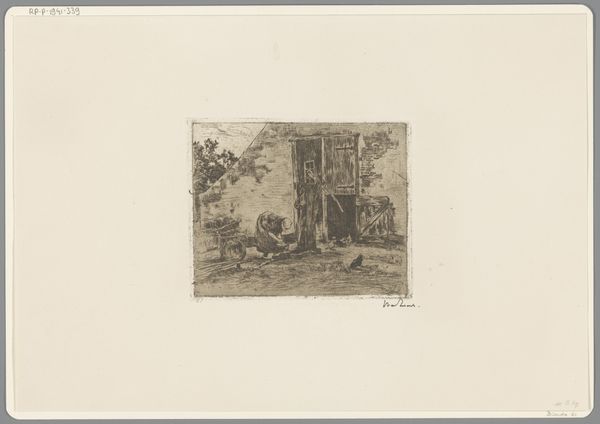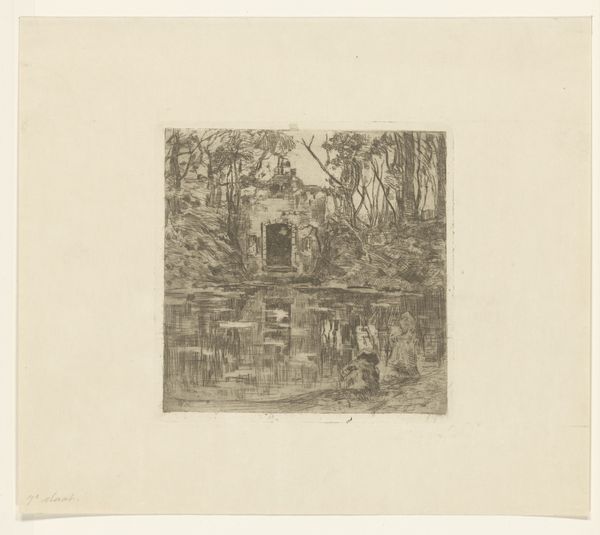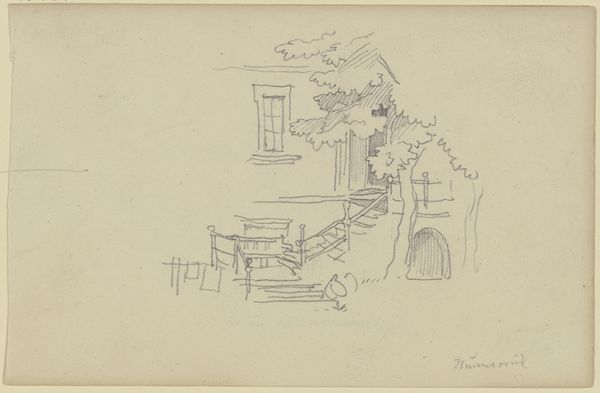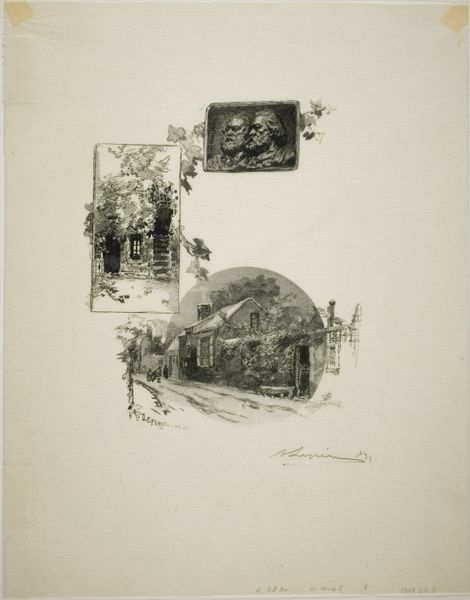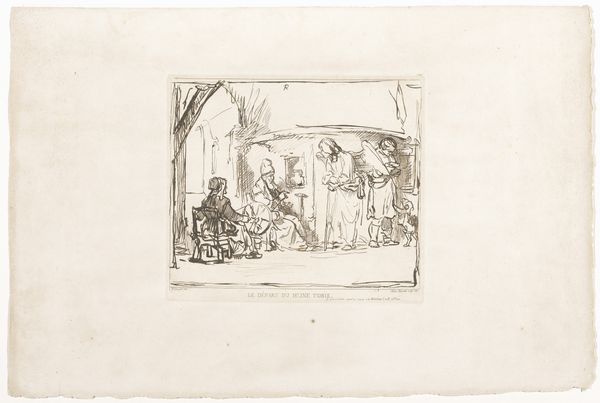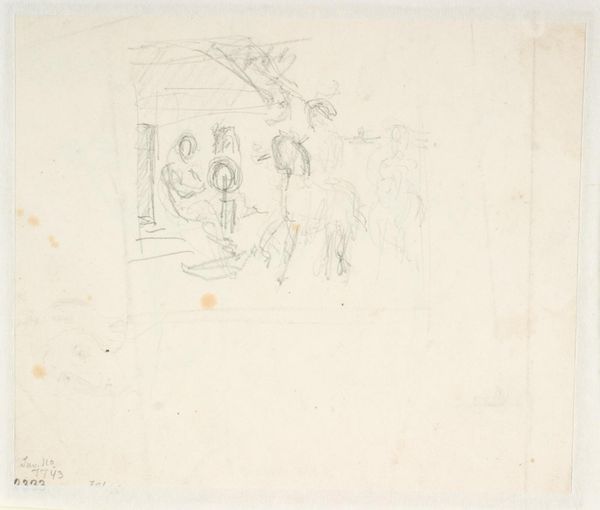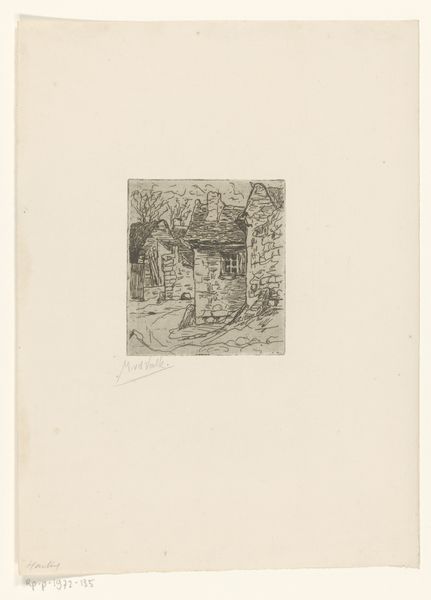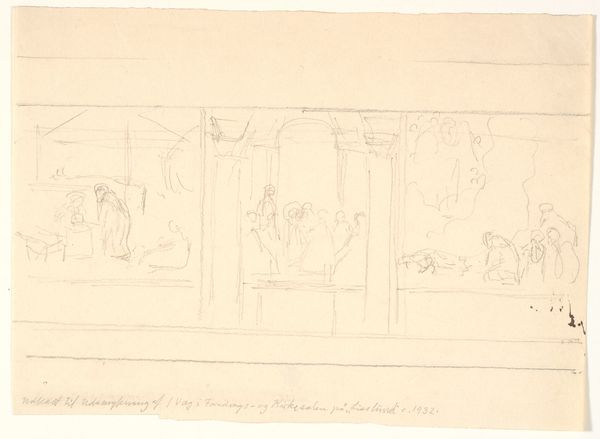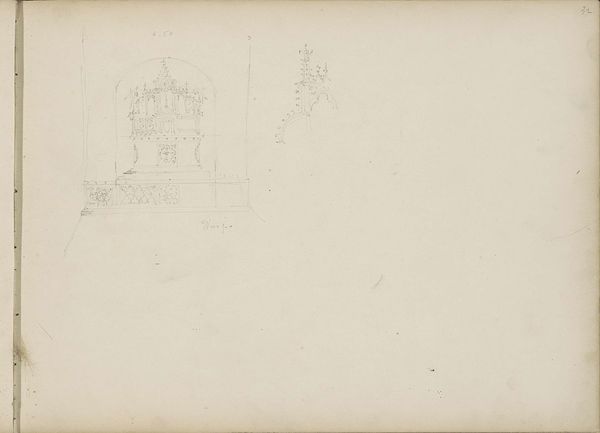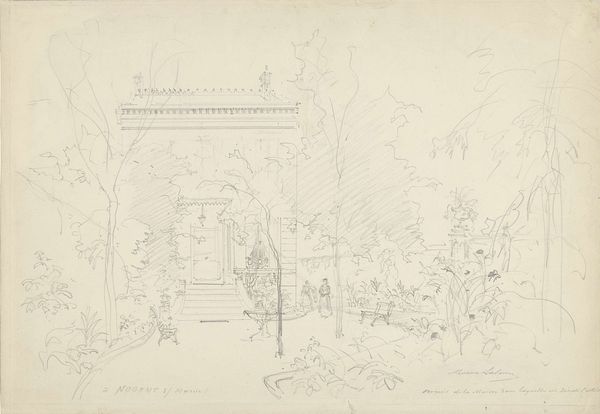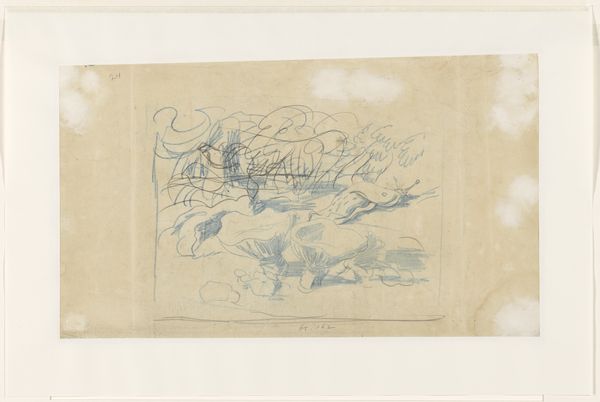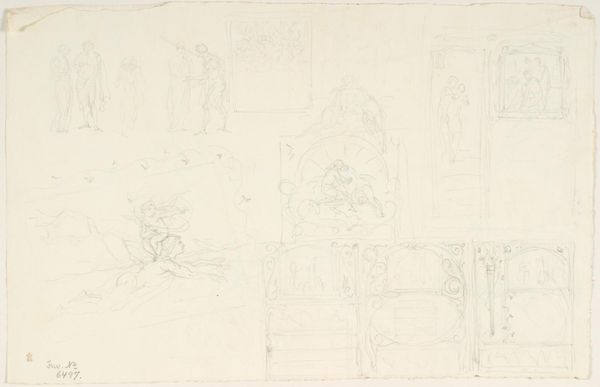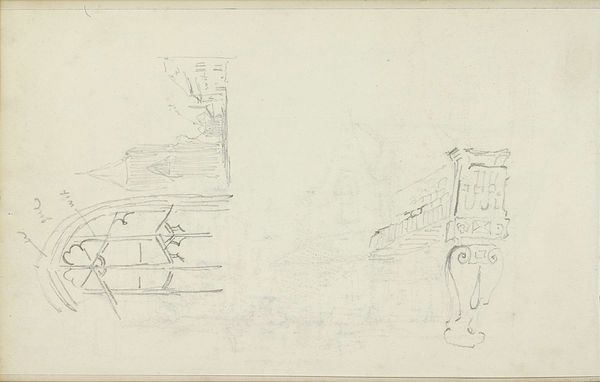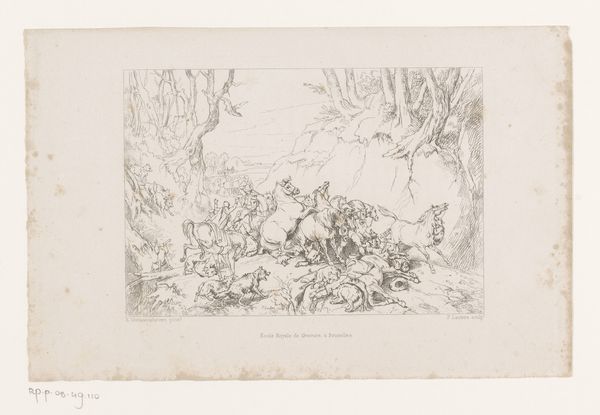
drawing, lithograph, print, paper, ink
#
drawing
#
lithograph
# print
#
landscape
#
etching
#
paper
#
personal sketchbook
#
ink
Dimensions: 205 × 290 mm
Copyright: Public Domain
Editor: This is Joseph Pennell’s "The Garden of the Mosque I," a lithograph from 1896 currently residing at The Art Institute of Chicago. I’m struck by the artist’s delicate handling of light and shadow to create this intimate scene, it almost feels voyeuristic. What can you tell me about it? Curator: That’s an astute observation. Pennell's work often reflects the socio-political climate of his time. As a printmaker, he mass-produced imagery, contributing to a wider visual culture. How do you think this medium choice informs the content and potential impact of a piece like this one? Editor: I guess lithographs allowed for broader circulation compared to, say, a unique painting. Maybe it helped to familiarize a Western audience with a sense of otherness, a romanticized view of a faraway place? Curator: Precisely. Consider the context: it's the late 19th century, a time of burgeoning Orientalism and Western expansion. Images like this were consumed by a public eager to visually explore 'exotic' locales, and this interest helped inform attitudes of cultural superiority. Think about what stories and power dynamics are present (or not!) here in Pennell's particular choices about what parts of this garden and mosque he chose to depict, and how. Editor: So, this seemingly innocent garden scene could have played a part in shaping perceptions and solidifying stereotypes? I hadn't really considered that aspect of landscape art before. Curator: Absolutely. The very act of selecting and framing a particular view has a political dimension. Pennell offers a selective glimpse, shaping our understanding of a culture through his artistic choices. Editor: It’s fascinating to realize how even something that appears to be just a landscape can carry so much historical weight and influence public opinion. Thank you for this perspective. Curator: My pleasure. Looking at art through the lens of its socio-political context can reveal powerful, and sometimes unsettling, insights into the past and present.
Comments
No comments
Be the first to comment and join the conversation on the ultimate creative platform.
